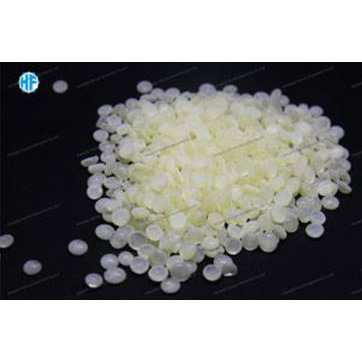Weighing the Pros and Cons: Petroleum Resin Versus Other Resin Types
2024-03-18
In the world of synthetic resins, various types are available, each with its own set of advantages and disadvantages. Among these, petroleum resin stands out as a versatile and widely used option. However, it's essential to understand how it compares to other resin types to make informed decisions in formulation and application. In this blog, we'll explore the advantages and disadvantages of using petroleum resin compared to other resin types, shedding light on their respective strengths and limitations.
Advantages of Petroleum Resin:
1. Versatility: Petroleum resin is highly versatile, suitable for a wide range of applications across industries such as adhesives, coatings, inks, and rubber compounding.
2. Cost-Effectiveness: Compared to some other resin types, petroleum resin tends to be more cost-effective, offering manufacturers a cost-efficient option without compromising on performance.
3. Solubility: Petroleum resin exhibits excellent solubility in various solvents, allowing for easy formulation and compatibility with other ingredients in coatings, inks, and adhesives.
4. Compatibility: Petroleum resin is compatible with a wide range of polymers, additives, and solvents, offering formulators flexibility in creating customized formulations tailored to specific application requirements.
5. Enhanced Adhesion: As a tackifying agent, petroleum resin enhances adhesion in adhesives and sealants formulations, providing strong, durable bonds between substrates.
Disadvantages of Petroleum Resin:
1. Environmental Concerns: Petroleum resin is derived from petroleum feedstocks, raising environmental concerns related to its extraction, production, and potential contribution to carbon emissions.
2. Limited Bio-Based Options: Unlike some other resin types derived from renewable sources such as plant-based materials, petroleum resin lacks bio-based alternatives, limiting its appeal for environmentally conscious consumers.
3. Volatile Organic Compounds (VOCs): Some petroleum resin formulations may contain volatile organic compounds, which can contribute to air pollution and pose health risks in poorly ventilated environments.
4. Tackiness Variability: Petroleum resin's tackiness may vary depending on formulation and environmental conditions, requiring careful formulation adjustments to achieve desired adhesive properties.
5. Dependency on Fossil Fuels: Petroleum resin production relies on fossil fuel extraction and refining processes, making it susceptible to price fluctuations and supply chain disruptions associated with the petroleum industry.
Comparisons with Other Resin Types:
1. Compared to Natural Resins: Petroleum resin offers consistency, reliability, and cost-effectiveness compared to natural resins, which may vary in quality and availability depending on seasonal factors and geographic location.
2. Compared to Bio-Based Resins: While bio-based resins offer environmental benefits and renewable sourcing, petroleum resin provides superior performance, stability, and cost-effectiveness in certain applications.
3. Compared to Synthetic Resins: Petroleum resin competes with other synthetic resin types such as acrylic, epoxy, and polyester resins, offering comparable performance characteristics with advantages in terms of cost and versatility.
Conclusion:
Petroleum resin offers a host of advantages, including versatility, cost-effectiveness, and enhanced adhesion, making it a popular choice in various industrial applications. However, it's essential to consider the potential environmental impact and limitations associated with petroleum resin compared to other resin types. By weighing the pros and cons of different resin options, manufacturers can make informed decisions to meet performance requirements while addressing sustainability and regulatory concerns in today's dynamic marketplace.



